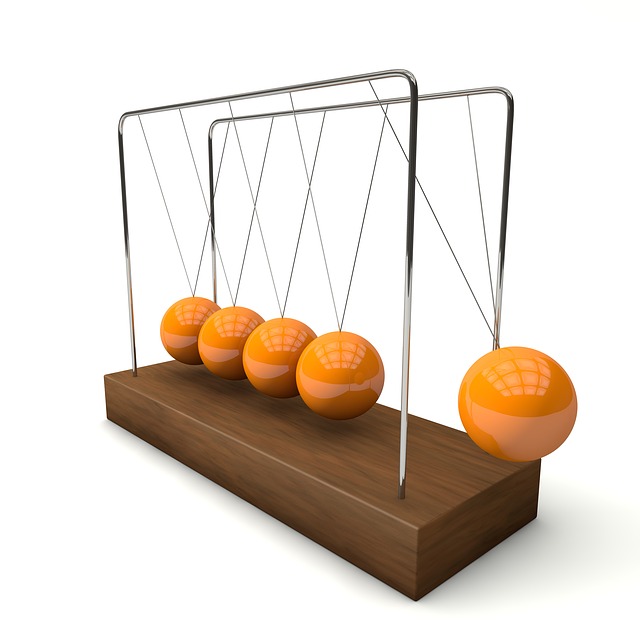Focusing on too many things at the same time can be distracting.
If many things come together and get stressful, it becomes annoying. At the same time, to be in charge and manage everything can be fun, like a game, where the next challenge needs to me mastered. Once mastered, it brings satisfaction and the next level can be approached. Many professionals are used to this high pace, ‘always-on-the-run-life,’ and they enjoy it. Some fear missing out on something if it’s less hectic because only hard work is valuable work.
A fast-paced lifestyle works out perfectly fine and can lead to top performance, provided we function on a routine.
But as soon as we get distracted, we fall out of our routine and balance. This can happen through a major life event, such as death, divorce, or health complaints. It doesn’t always have to be a drastic experience; it can also be a series of unfortunate events. What previously seemed simple suddenly becomes exhausting and cumbersome. Uncertainties and fears that we did not consider before suddenly become more noticeable.
We experience anxiety or failure. Our natural reaction is to compensate for such experiences. If, for example, we experience a performance low or feel overwhelmed, we work extra hours, delegate work, give up responsibility, reduce performance, put personal needs aside, and minimise or avoid social contact. We also distract ourselves from negative feelings and emotions and repress them.
If we compensate negative strains for too long, we will reach a point of dissatisfaction and unhappiness. This might be surprising and incomprehensible for us, especially if we are successful and seemingly have everything in life we wanted.
The truth is that we ignore the signs of discomfort and disregard our needs. Eventually, we no longer fulfil our own expectations and our needs to the extent desired. In the meantime, we may have forgotten what we want and who we really are. If we continue on this path, we risk becoming ill and one of the most common instances of this is a burnout.
That doesn’t have to happen. If you realize that, you start to compensate for whatever reason. Rituals can help.
The behavioral scientist and practitioner Nick Hobson, Ph.D., explained in an article of the psychologytoday.com magazine that since failure of any kind is almost inevitable, the way we respond to such setbacks is critical to our success (and I would say also to the quality of our lives). Nick Hobson and some of his students at the University of Toronto obtained proof in a study about the neuroscience of performance rituals, which said that a ritual can be used to boost performance.
Why rituals? Because rituals help our brain better control our anxiety and minimize sensitivity to personal failure. While worrying about a possible error affects performance, a ritual can lower the brain’s fear.
This can be compared with a top athlete who must give his all. If troubled with fear and doubt, the chance is high that the athlete will fail. That’s why athletes train and perform the same movement over and over again, like in a ritual. They internalize the motion sequence until they function almost automatically, without thinking. In addition, they regularly train their thoughts and associate the desired success.
You too can develop rituals that help you deal with everyday challenges and be successful.
What rituals are and why they are important.
Rituals are regularly, constantly, and consciously performed sequences of actions that give meaning to what we do. Such routine processes simplify the handling of unforeseen or complex tasks and events and thus give us support, orientation, and security.
This makes rituals an important part of our day-to-day functioning, helping us improve our focus, concentration, and attention. Rituals help us make decisions and in dealing with our environment. In addition, rituals facilitate our confrontation with ourselves and our own needs.
While rituals are often associated with religion or spirituality, they also take place wherever performance is lauded (such as education, sports, medicine, etc.) I am convinced that with the right attitude and intention, we can turn any routine action into a ritual.
Instead of feeling that all your activities are a “must”, your daily activities can become something you look forward to and enjoy doing.
This is possible when you are convinced that your actions have a positive influence on your experience and, thus, on your life. In other words, the more meaning you can imbue your daily activities with, the more motivated you will be in tackling them. In turn, this makes it easier for you to celebrate them in the form of a ritual. Keep a regular eye on your daily activities from a distance; think about how each one can gain importance and contribute to the improvement of your life.
Sometimes, it is hard to find the right ritual immediately. Sometimes, the selection of rituals is easy, but sustaining their practice is hard. In any case, when you feel like you can’t get any further, do not give up and keep trying.
Now, it is your turn. Develop your own rituals that help you balance your everyday life and turn off your thoughts.
If you want support and help in choosing your rituals and how to implement them step-by-step, please reach out to me.


